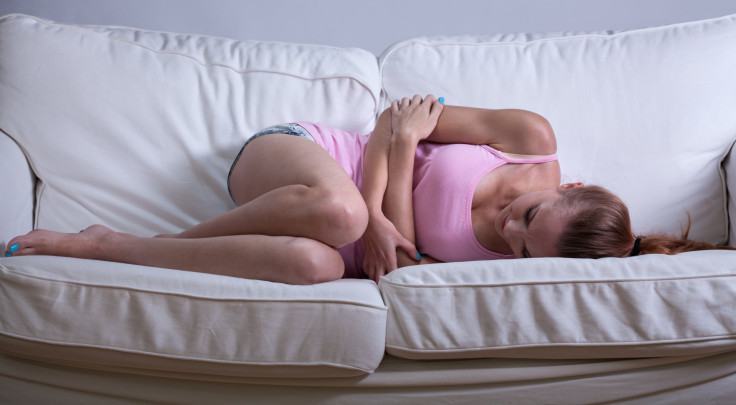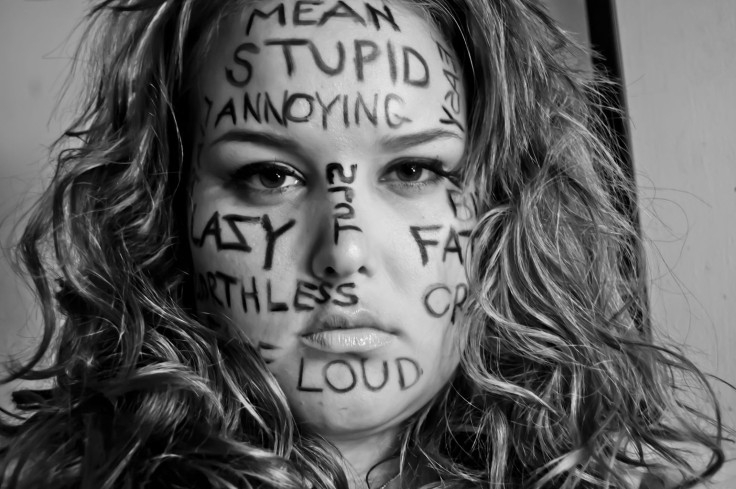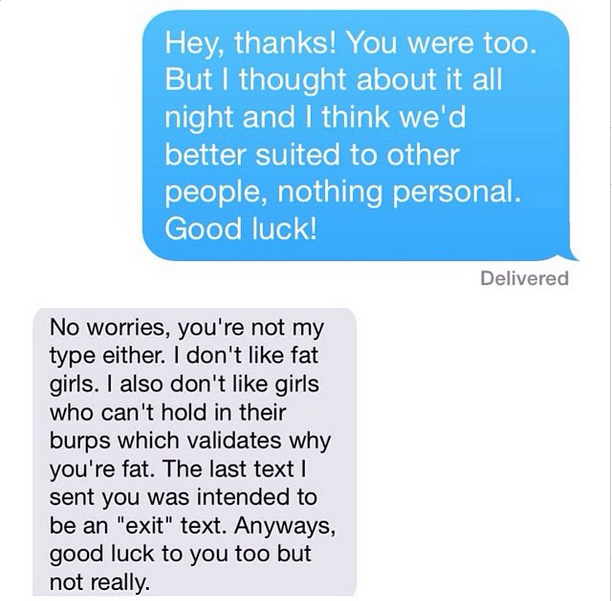Opinion: Shame In Today's Society: What It Means, And Why It Absolutely Needs To Stop

Ask a woman right this second, even some men, if they’ve ever felt shame for being too thin, too fat, too slutty, too this, too that, and I guarantee you will be inundated with the number of instances they can recount. Hannah McGoldrick, associate editor for Runner’s World, could tell you she’s been told to eat a sandwich and looks anorexic. I myself could tell you classmates “took cover” behind me during recess games and thought it reasonable to end arguments like, "At least I don’t weigh 300 pounds." While McGoldrick and I were physically targeted for different reasons, the way we felt afterwards was no doubt the same. Shame, no matter who it’s targeted at, hurts really bad. And so, I want to be emphatic about the solution: shut up.
"Thin-shaming, fat-shaming — doesn't matter — it is all about shame. We have become a very mean society, and it is open season on women's bodies," Dr. Ramani Durvasula, a clinical psychologist and professor of psychology at California State University in Los Angeles, told Medical Daily in an email. "Over 90 percent of women report dissatisfaction with their bodies. However, even when a woman achieves that comfort, the world is there to cut her down."
Shame Versus Guilt
It’s called thin- and fat-shaming, not thin- and fat-guilt, because shame and guilt are distinctly different emotions. June Tangney, author of Shame in the Therapy Hour and professor of psychology at George Mason University in Fairfax, Va, told Medical Daily that when a person feels guilty, they say, "I did a bad thing." When they feel shame, they say, "I am a bad person for having done that."
"Guilt is much more fixable and amenable to change, but if you’re talking about shame in regards to the self, it makes a person feel defective in some way. It’s not fair," she said.
Brene Brown, renowned shame researcher and author of the New York Times best-selling Daring Greatly, cited research in her TED Talk that found shame is highly correlated with addiction, depression, violence, aggression, bullying, suicide, and eating disorders, while guilt is inversely correlated with those things. Shame inspires people to escape and hide. People withdraw out of fear of being judged because what’s at stake isn’t their behavior. It’s not how little or how much they seem to eat. It’s their basic selves. "The self becomes impaired, and we’re generally just really wounded," Tangney said.

Call A Spade A Spade
Public shaming isn’t new. There may have been more emphasis on the "public" part in, say, 1700, but people have been privy to other people’s off-handed comments and remarks for centuries. Hello, Hester Prynne, in Nathaniel Hawthorne’s The Scarlet Letter. Now, social media has made it painfully easy to come across the negativity, the haters, and the straight up trolls. Even more painful than that is the ongoing argument thin-shaming is worse than fat-shaming, and vice versa. Science complicates the matter when a lot of research only focuses on the harmful effects of fat-shaming; some of them being that overweight and obese female defendants are more likely to be convicted of a crime, and more likely to have a harder time getting hired and paid the same amount as their fellow employees.
"Body image is an easy target," Durvasula said. "Women who are overweight are assumed to be slovenly, sloppy, and lazy, and women who are slender are assumed to be anorexic, underfed, and vain. And frankly, if a woman has a disorder, whether it is binge eating or anorexia nervosa, it is the height of cruelty to mock her and call her out publicly for it."
Shame is shame. Beyond that, a woman’s body doesn’t exist for you to comment on what it does or doesn’t need, or what it is or isn’t capable of. The recent cat-calling video from Hollaback, an international movement to end street harassment, is an example (however flawed) of how much people don't get that. It shows a portion of people who genuinely think it's OK to fall quietly in step with a woman after she's steeled herself against a person's comments. And even then —whether it's ignoring the man or kindly rejecting him — she's subject to some form of shame, as shown by the recently launched Bye Felipe Instagram account. Like, what?

The truth is (and this is especially the case online) you don’t know anything about a random person’s life. Going back to McGoldrick, I’m curious to know how the people who told her she looked anorexic felt when they found out she was, in fact, recovering from an eating disorder. While McGoldrick’s essay fiercely asserted how comfortable she was with her body and how hard she continues to work toward being healthy, it could have easily gone the other way. What if one of those comments undid all her progress?
Stop Shaming
Thin- and fat-shaming don’t stem from (as some crass definitions have described) a woman’s or man’s resistance to change or (lol) their identification with feminism. It doesn’t matter what your body looks like, what your beliefs are, or how you were raised, Tangney said — every single woman and man is prone to shame. It’s an actual thing, and it hurts women and men equally.
The antidote, according to Brown, is empathy. "If you put shame in a Petri dish, it needs three things to grow exponentially: secrecy, silence, and judgment,” she said. “If you put the same amount of shame in a Petri dish and douse it with empathy, it can't survive. The two most powerful words when we're [struggling]: me too."
Durvasula added: "The changes we need to see are more realistic media images, [starting to] value women for their minds and accomplishments, and raise public awareness of these eating disorders, and their depth and impact. Change can begin one woman at a time. And instead of shaming each other, we can support ourselves instead."
Published by Medicaldaily.com



























